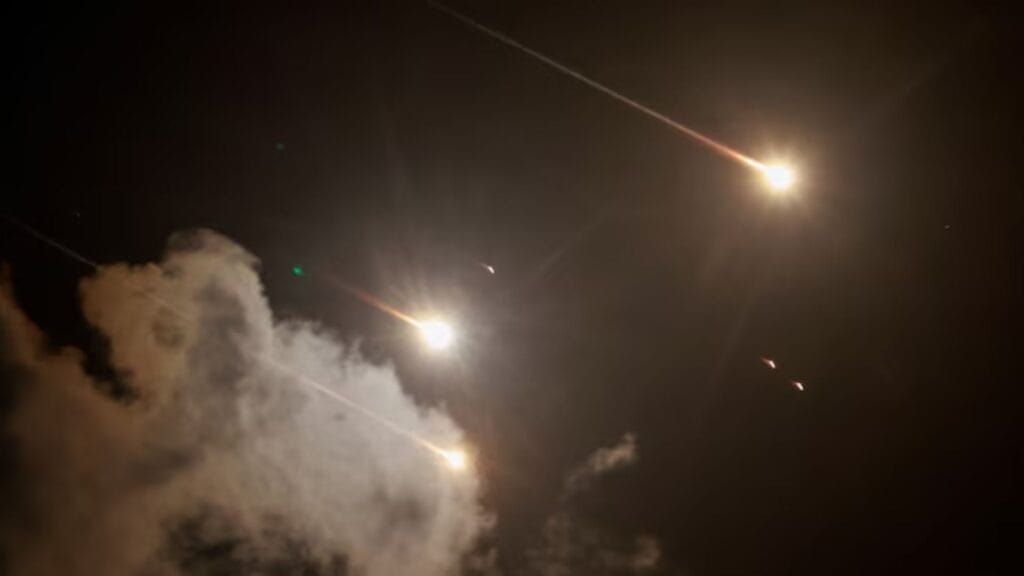There were shocking developments in the Middle East over the weekend with Israel launching airstrikes against Iranian military targets, targeting areas around Tehran. The Israeli Defense Forces said this was in direct response to Iran’s “months of continuous attacks” that they say warrant a defensive move to protect their interests and national security. Israeli Prime Minister Benjamin Netanyahu and Defense Minister Yoav Gallant coordinated the attack from military headquarters in Tel Aviv, making clear the attacks were “precise” strikes on military installations, intended to avoid civilian infrastructure but still disrupt what Israel views as active threats.

According to sources, Iran’s defense systems intercepted most of the incoming strikes to a few locations, limiting the damage. The airstrikes have shaken Tehran and the surroundings since residents reported seeing explosions. Although the Israeli operation appears to have ended in three waves, Iran’s government has claimed that any such attack will not pass without their threat, which is that they are on notice that they will come for the State of Israel.
“I can now confirm that we have concluded the Israeli response to Iran’s attacks against Israel. We conducted targeted and precise strikes on military targets in Iran — thwarting immediate threats to the State of Israel.”
Watch IDF Spokesperson RAdm. Daniel Hagari talk about the… pic.twitter.com/1OOss3etpV
— Israel Defense Forces (@IDF) October 26, 2024Why Israel Struck Now
This seems to be a development based on a historical record of a long-standing rivalry between Israel and Iran, often characterized by mutual antagonism and military battles. The government in Israel believes that Iran has directly aided anti-Israel groups, Hamas and Hezbollah, which are both fighting against Israel from Gaza in the West Bank and Lebanon, respectively. Strikingly, though, the strikes target the heart of Iran rather than its allied groups, which might propel this conflict into a wider regional confrontation.
Israel chose not to bomb nuclear or energy infrastructure, a limitation likely spurred by pressure from the United States. Secretary of State Antony Blinken, just returned from a tour of the Middle East, had advised the leaders of Israel to be cautious and not blow things up to the nuclear establishment. This illustrates Israel’s desire to strain Iran while being discreet with relations with powerful allies, such as the United States.

Wider Regional Consequences
The repercussions of Israel’s strikes are not limited to Iran alone. Regional security concerns have forced the Iraqi government to ground flights across all airports, and Iran and Israel have closed their airspace to civilian flights. This has created a sense of unease that has extended throughout the region, prompting worries that the conflict could easily spiral into a more extensive, uncontrollable war across the Middle East.
This development further underscores the complex political landscape that the Middle East represents. The U.S., for example, had prior knowledge of the intention of Israel but did not participate, citing Israel’s right to self-defense. Israeli Strikes in Iraq and Syria President Joe Biden has been briefed and continues to monitor the evolving situation closely.
This is not Tel Aviv
This is not Haifa
This is not Safed
This is Tehran, Iran .
Israel can go to any extent to protect its people.
It would be wise not to underestimate them. pic.twitter.com/cvXRj3Vvgt
— Joseph Menslage (@KCMagazine) October 26, 2024Interestingly, while headlines focus on Iran strikes, the Israeli military has been conducting airstrikes in neighboring states. According to reports, the Israeli strikes have been identified in several Iraqi cities like Tikrit and Samarra, as well as in southern and central Syria. Indeed, the airstrikes on territories with reported Iranian-backed militia presence indicate that Israel takes a broader approach by hitting any regional hubs it thinks pose a threat to its safety.
Final Thoughts: Is This the Point of No Return?
Will this conflict go further than it will come back? For me, recent strikes by Israel on Iran can be short-term deterrence as Iran is given a message that whatever attack may come, they have colossal power to return. But then again, there could be more to escalate because Iran said they would retaliate. Since alliances and enmities both run deep yet can shift in a region, the blow of these strikes may hang in the balance with chances that may urge other nations to take sides, or, on the other hand, diplomatic steps may be taken to prevent a full-scale regional war.
Whatever the proportion of that incident- a harbinger of a lasting deterrent or a catalyst for an increased scale of conflict will most likely influence the political and security discourse in the Middle East for some time to come.
Minutes by M31GlobalNews






